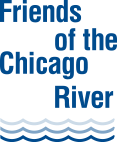NPDES Community Working Group
In 2021, Friends and our Water Quality Task Force partners hosted discussions to update the City of Chicago’s National Pollutant Discharge Elimination System (NPDES) permits. The goal is to write a permit that focuses on equity and clean water. Once the IEPA approves the permit, Friends will advocate for equitable implementation and distribution of investments, as the City works to meet the permit’s requirements.
We invited frontline community groups – directly impacted by combined sewer overflows (CSOs), flooding, and basement backups – to participate in a series of meetings with City staff. These participants formed the NPDES Community Working Group. Their input and insight, which goes beyond the scope of the permit, are captured in a detailed Community Report. The overarching themes are highlighted below.

Equity
Benefits of the permit must be distributed in an equitable manner across the city. Investing in areas currently designated as primary use, and where people are already on the water, can exacerbate these inequities.
Gentrification
As more access is created to take advantage of the river’s water quality improvements, communities are concerned about gentrification.
Visioning
Community groups want to get to the point of saying what they do want instead of constantly confronting what they don't want.
Job Creation and Opportunities
Many communities along the river are home to industries that pollute the surrounding air and water. Not only do communities want to see these harmful practices end, they want to see green jobs replace them.
Health and Safety
In order for current and future Chicagoans to see the river system as the City’s second waterfront, they must first trust the health and safety of the water.
Public Education
Public education should connect green stormwater infrastructure interventions to avert street flooding, basement backups, and discharges into the rivers and Lake Michigan.
Reducing inflows
The more our environment can capture rainfall where it lands, the less water our wastewater treatment facilities receive, which lessens the likelihood of a CSO. Friends therefore advocates for expanding nature-based solutions.
Litter and pollutant control
CSOs release untreated wastewater, and stormwater runoff carries pollutants and litter to the river. Friends’ Litter Free Task Force and plastics reduction work address some of these harmful pollutants.
Public notification
As Chicagoans and visitors embrace the river system, it is important to notify the public of CSO outfall locations and when CSOs occur. Water quality monitoring is a key component to public awareness. Friends advocates for a unified and accessible system for public notification.

Notification of a CSO outfall location (Left and bottom right) and an outfall (top right).


